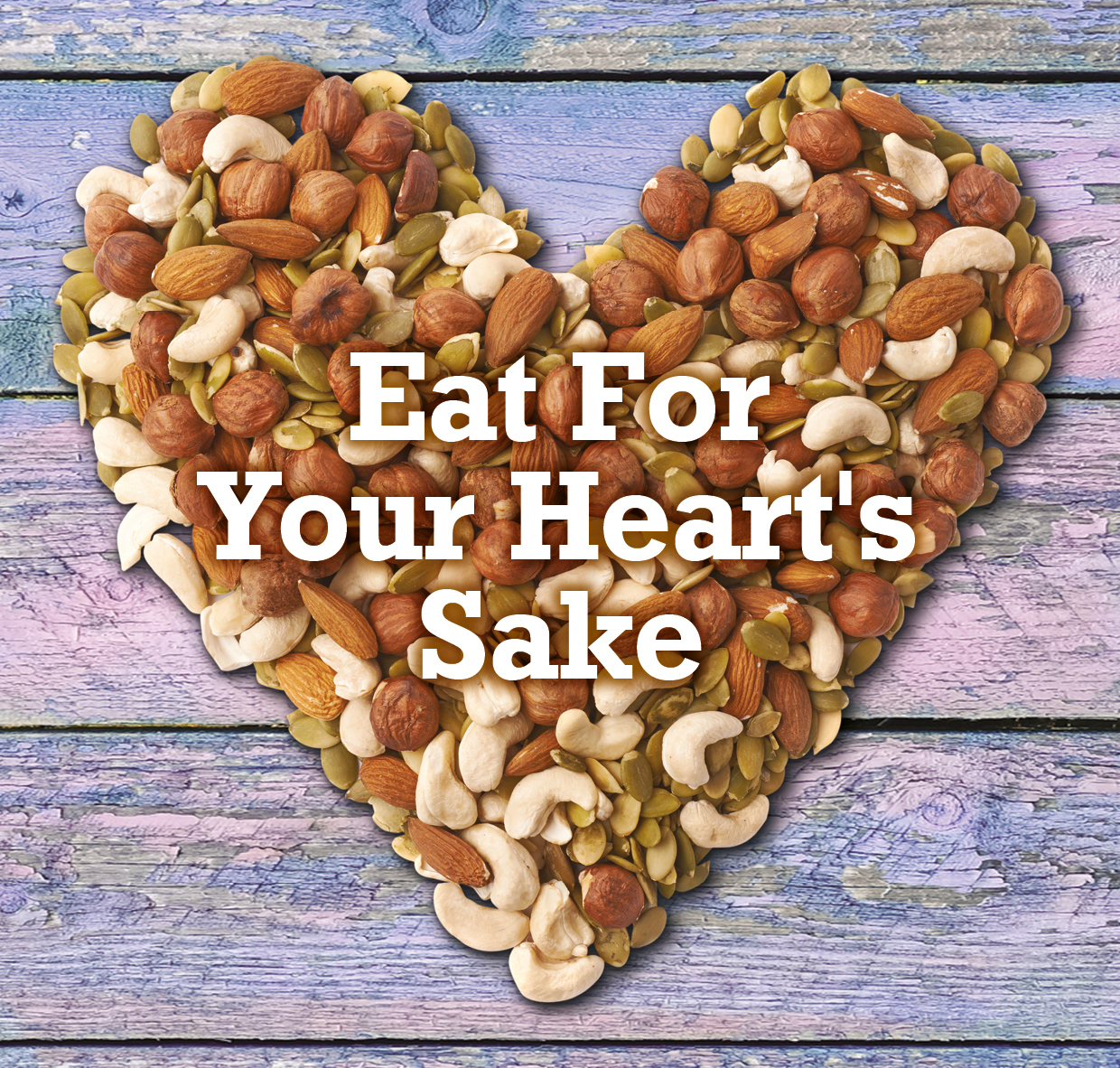
Foods that can counter those cardiovascular threats
There is a direct link between what we eat and our heartbeat. It is called cholesterol.
Naturally-Occurring waxy substance cholesterol comes in two forms, good and bad. Good cholesterol is carried around the body by high-density lipoproteins (HDL) and is simply swept away after use. Bad cholesterol, transported by low-density lipoproteins (LDL), can be deposited in arteries, restricting blood flow, causing coronary heart disease and at worst a heart attack.
What creates this LDL menace is saturated fat. We need some fat. But saturated fat from animal products like meat, butter and cheese raises levels of that LDL cholesterol. Unsaturated fats on the other hand actually help protect the heart by reducing levels of LDL cholesterol and maintaining the levels of the good HDL.
So, for our heart’s sake, we should cut out saturated fat and replace some of it with unsaturated. Monounsaturated fats are found in olive and rapeseed oils, seeds and nuts. Polyunsaturated fats include Omega 3 and Omega 6. Eating oily fish is recommended for increasing
Foods that can counter those cardiovascular threats The Five of Hearts the intake of Omega 3 fats which are particularly linked to heart health. But those on a plant-based diet need to look to other sources. But there is another way to combat cholesterol. Dietary fibre, particularly the soluble kind, forms a gel in the digestive tract which binds in cholesterol and then carries it away as waste.
The recommended daily level of fibre consumption is 30g. On average we eat only just over half of that. The NHS stresses it can help prevent heart disease and new global research commissioned by the World Health Organisation has shown that eating 25-29g of fibre a day cut heart disease, stroke and cancers by up to 30 per cent.
Other rules for a healthy heart diet include eating five a day and eating less salt. Too much salt is linked to high blood pressure. Below is our guide to the five plant-based food groups available at Grape Tree that can play an important role in fighting cholesterol, supplying heart-healthy nutrients and providing the protein required in a switch from saturated fats.
Wholegrains
All whole grains are rich in soluble fibre that lowers the levels of cholesterol. Oats contain a form of this fibre called beta glucan which has been the focus of scientific study showing that it not only prevents cholesterol being absorbed but also reduces blood sugar spikes. But regularly eating wholegrains – they include quinoa, buckwheat, bulgur and teff – has been shown to reduce the risk of heart disease, type 2 diabetes and stroke. They are also rich in protein. A cup (185g) of quinoa has 8g of protein as well as 5g of fibre.
Nuts
Research has repeatedly shown that eating a handful of nuts a day can dramatically reduce the chance of developing heart disease as well as other serious conditions including stroke. The key nut nutrients are believed be monounsaturated fats, fibre, antioxidants and minerals. Walnuts are rich in Omega 3, but cashews, hazelnuts and peanuts are all sources of good fat. Brazils, cashews and almonds also have magnesium which is linked to controlling blood pressure and heart rhythm. A handful of almonds (23g) has 7g of monounsaturated fat and 3g of polyunsaturated as well as fibre.
Pulses
For those on a plant-based diet and those switching away from saturated fat pulses are an important source of protein. But the likes of beans, lentils and chickpeas are also rich in soluble fibre and contribute to the well-established benefits of a higher fibre diet.
Pulses take longer for the body to digest and may also, therefore, help with fighting weight gain which is also a crucial heart disease factor. A serving of cooked pulses – 80g or around 3 heaped tablespoons – also counts as one of your five a day.
Seeds
Linseed is one of the richest plant sources of omega 3 fatty acids. Two tablespoons of ground linseed can deliver more than 3g of alpha-linolenic acid as well as almost 4g of fibre. Hemp seeds are exceptionally rich in both Omega 6 and Omega 3. Plus, they have both soluble and insoluble fibre. They are also excellent protein sources. Two to three tablespoons (30g) provide 11g of protein (about the same as beef). Two tablespoons of chia have around 10 per cent of your daily protein, a third of your fibre plus Omega 3 fats. Both chia and linseed also have magnesium (see Nuts).
Fruit
All healthy heart advice stresses the importance of eating five a day to supply the nutrients and antioxidants in fruit and vegetables. In fruit terms, this, of course, includes dried. Apricots, figs, dates and raisins all have a variety of important vitamins, minerals and antioxidants but it is their fibre content that makes them critical to heart health. A portion of dried apricots (3-4 fruits) has 6g of fibre. A portion of 3 dates has 3g of fibre plus potassium which is associated with lower blood pressure.